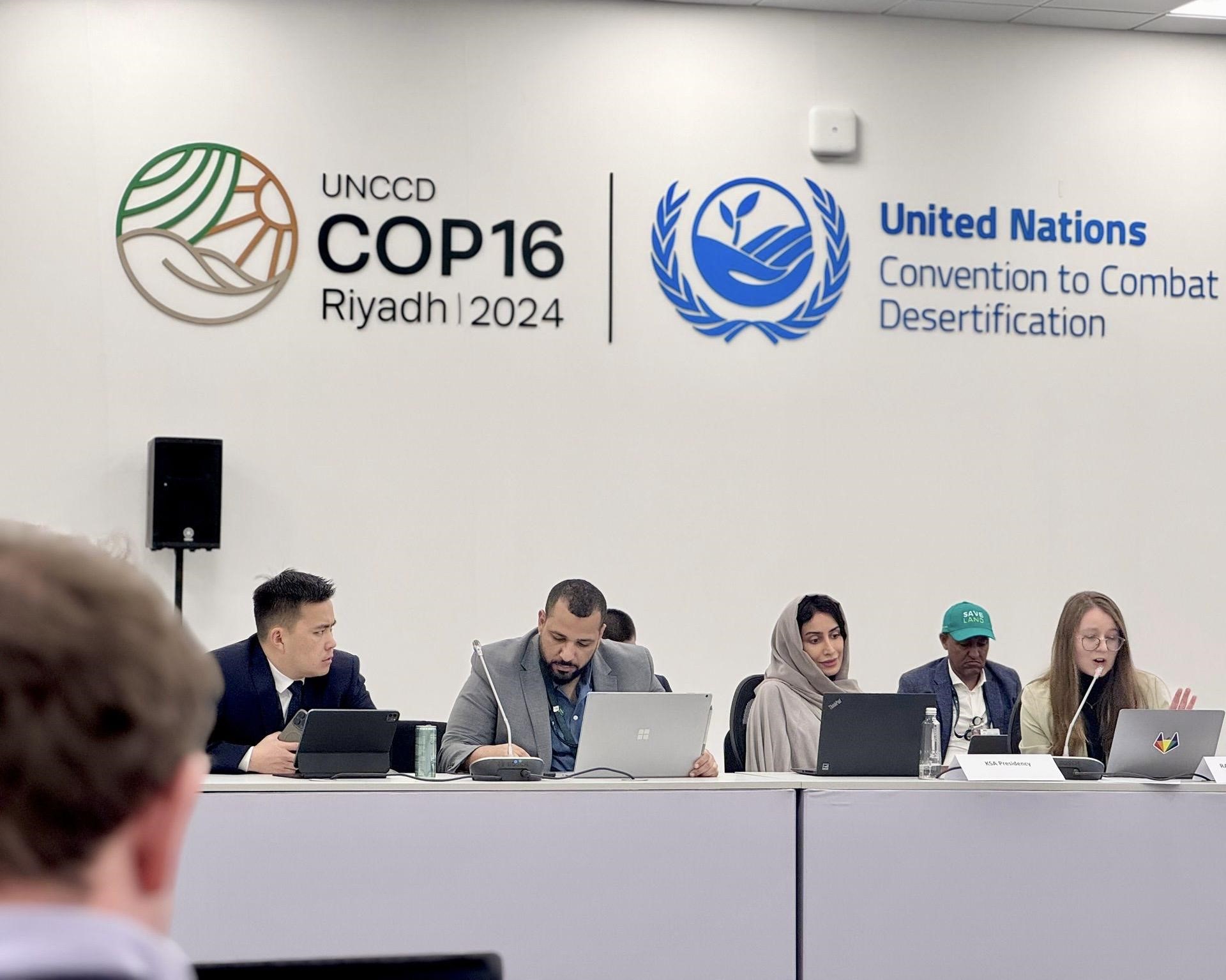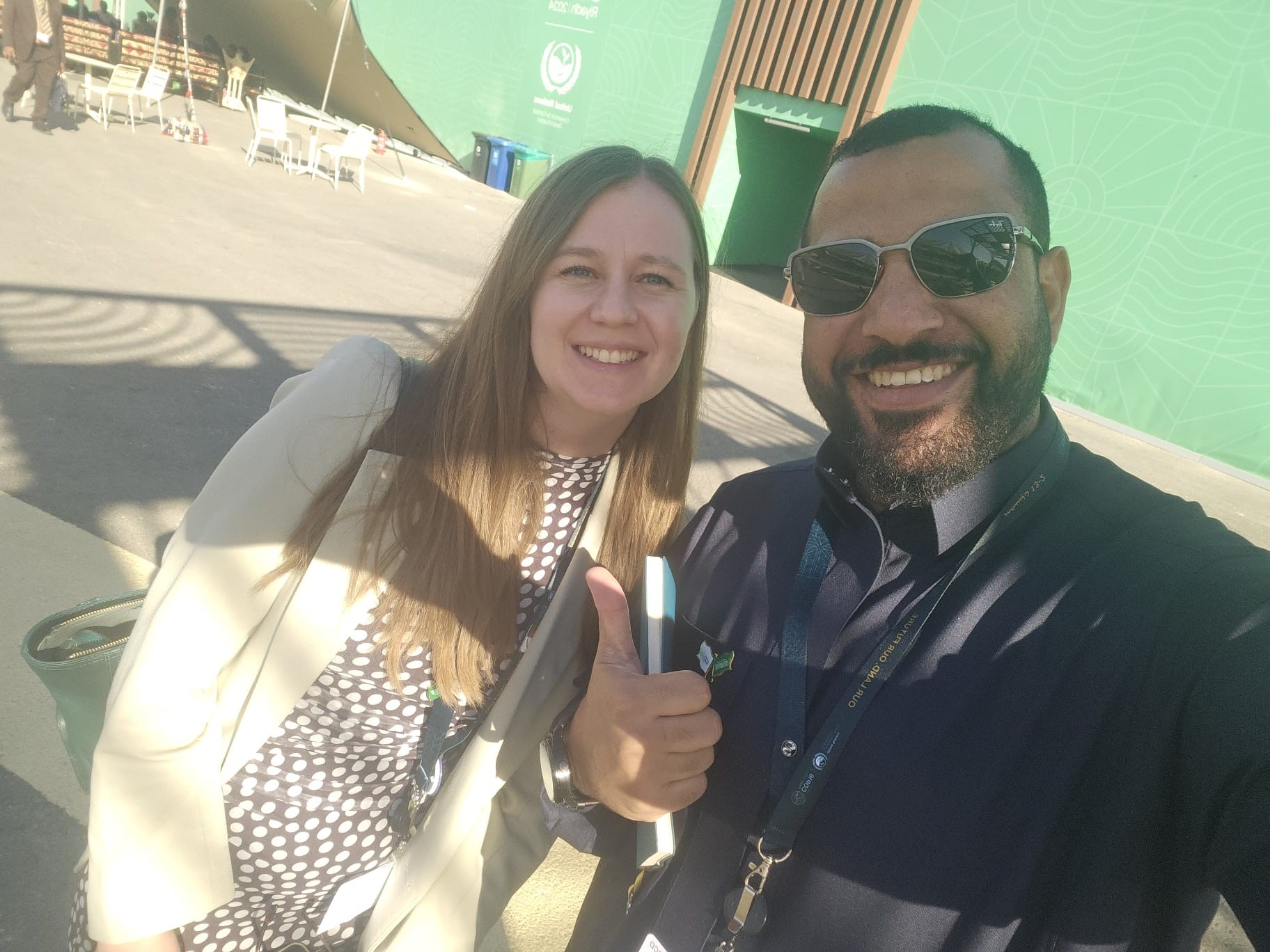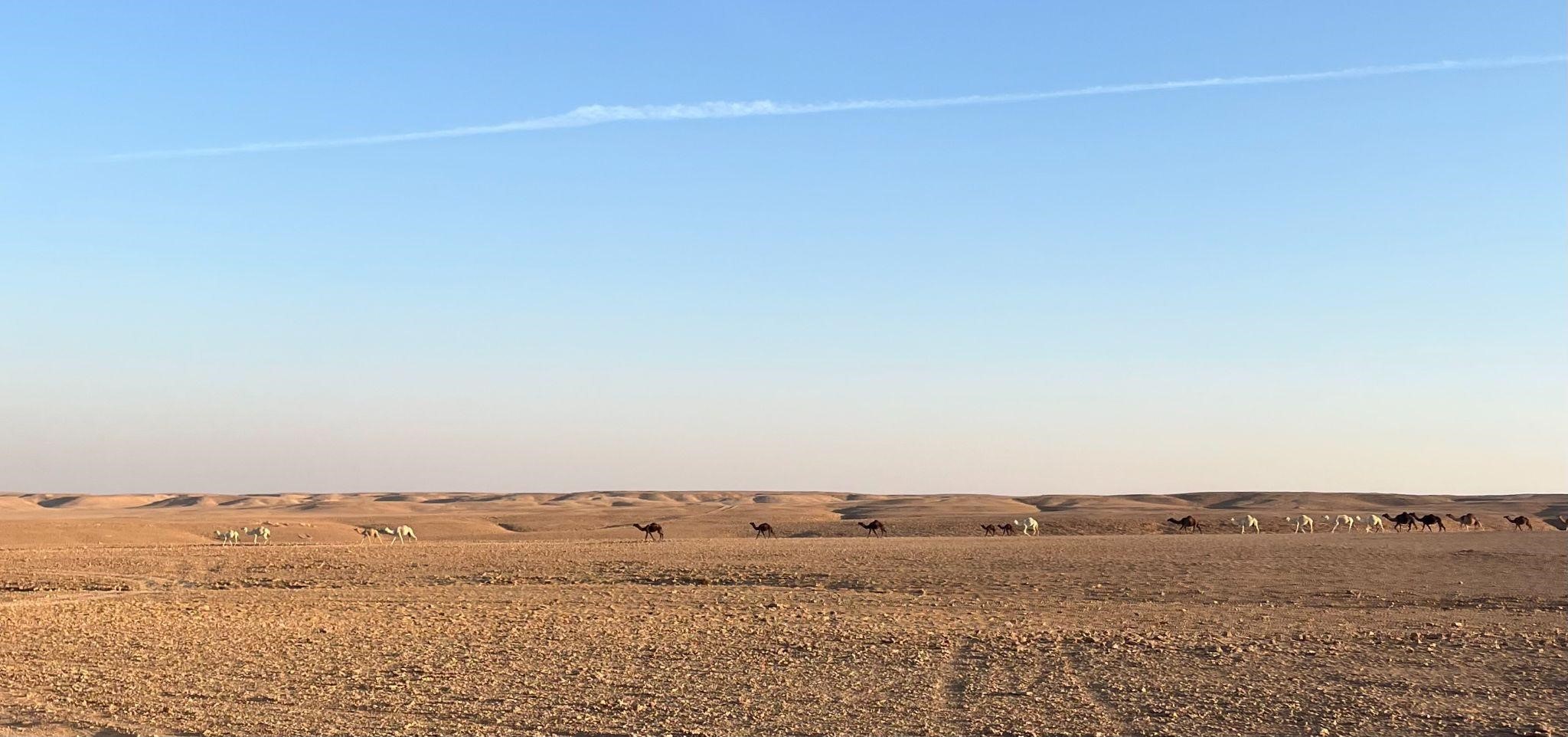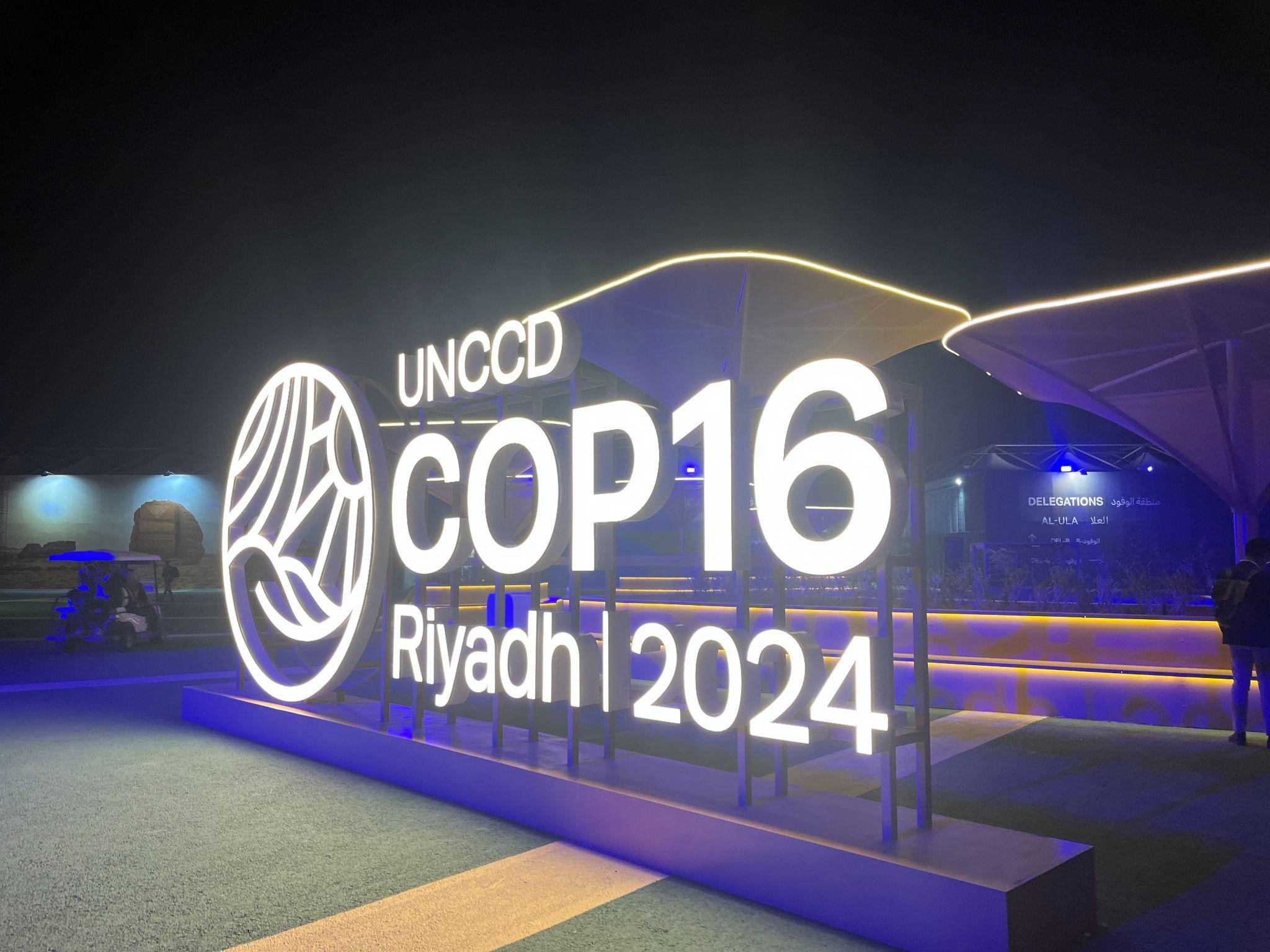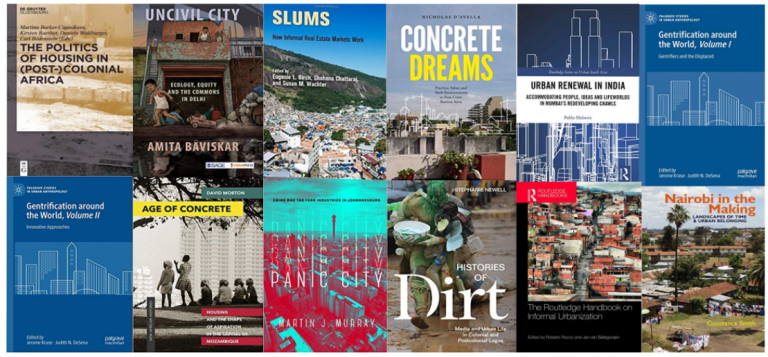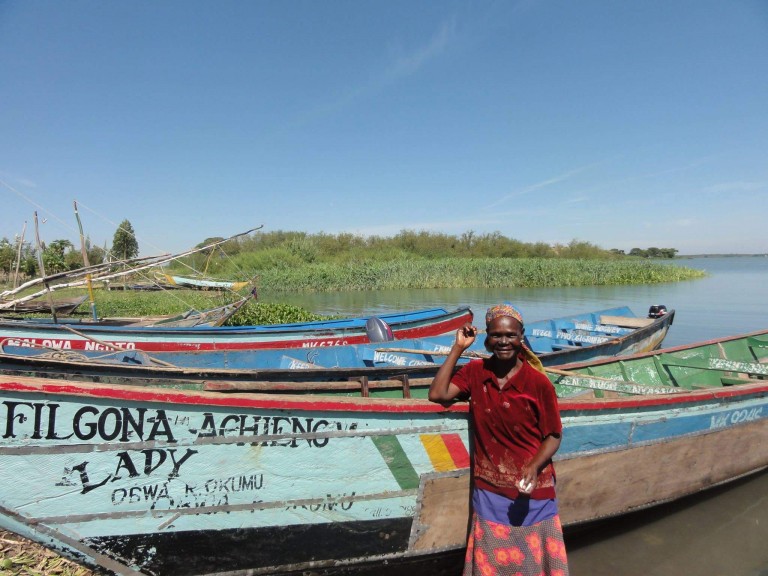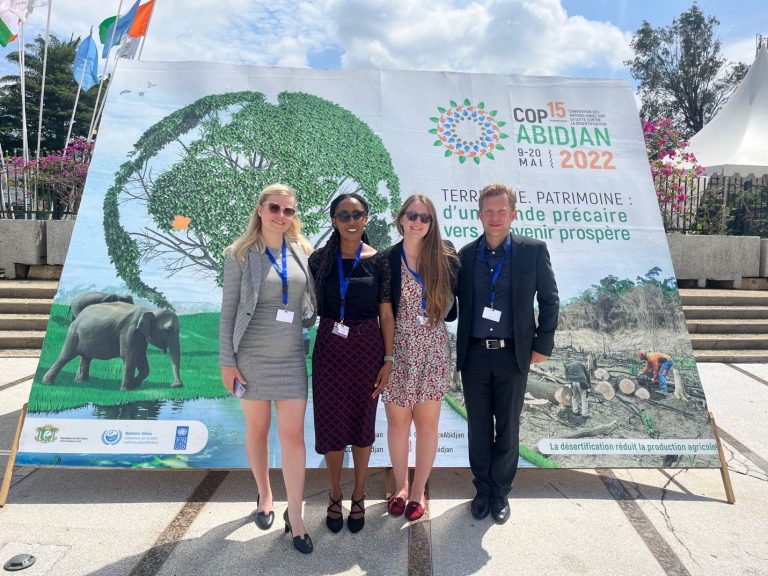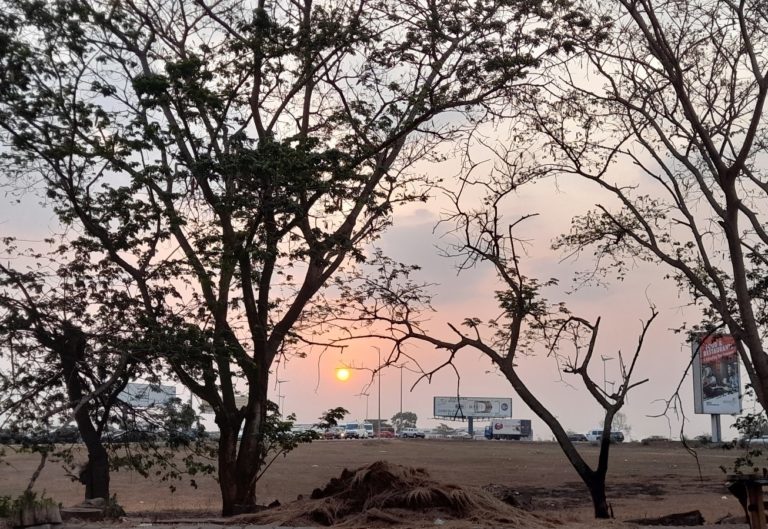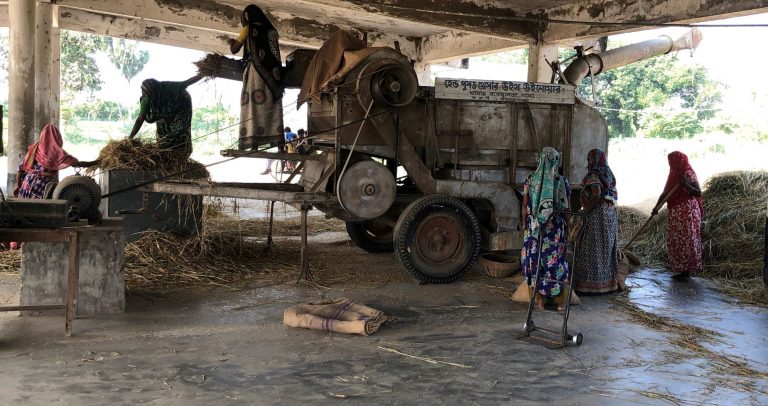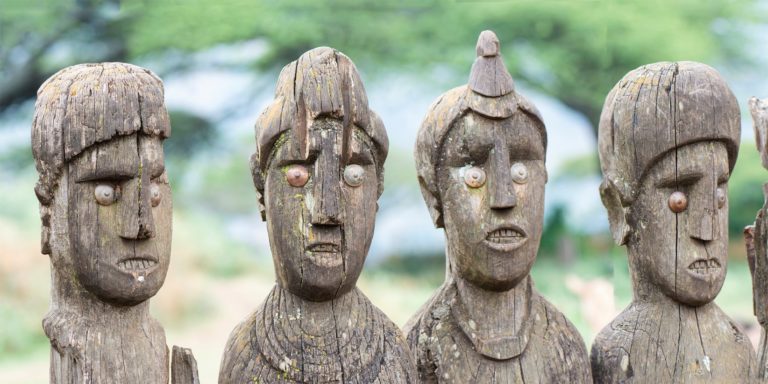UNCCD COP16 in Riyadh: Bolstering Land Actions for Climate, People, and Nature
Blog by Sara Velander and Nady Mahmoud (Junior Researchers in the LANUSYNCON Project at ZEF) share their insights from UNCCD COP 16, which was held in Riyadh, Saudi Arabia, December 2-13, 2024.

2024 was a landmark year for global environmental governance, marking a “triple COP year” with consecutive high-profile events: New York Climate Week (USA), CBD COP16 in Cali (Colombia), UNFCCC COP29 in Baku (Azerbaijan), and finally, UNCCD COP16 in Riyadh (Saudi Arabia). Despite the exhaustion of delegates shuttling between continents, COP16 attracted significant attention as the culminating event of the year, highlighting the critical role of land in addressing the intertwined crises of climate change, biodiversity loss and land degradation.
Unprecedented attendance reflects growing awareness
COP16 was historic, setting records for participation, with more than 20,000 attendees— triple the 7,000 at COP15, which was held in Cote D’Ivoire’s capital Abidjan in 2022. This surge reflects the growing recognition of the importance of land in achieving the Sustainable Development Goals. Government delegates, NGOs, businesses, indigenous peoples, farmers, youth, and women’s groups united to drive transformative action for climate, people, and nature. As the first UNCCD COP in the MENA region, and coinciding with the 30th anniversary of the UNCCD, Riyadh hosted groundbreaking initiatives, including the first-ever Action Agenda, focused on halting land degradation, conserving healthy land, restoring degraded landscapes, enhancing drought resilience, and advancing sustainable agri-food systems.
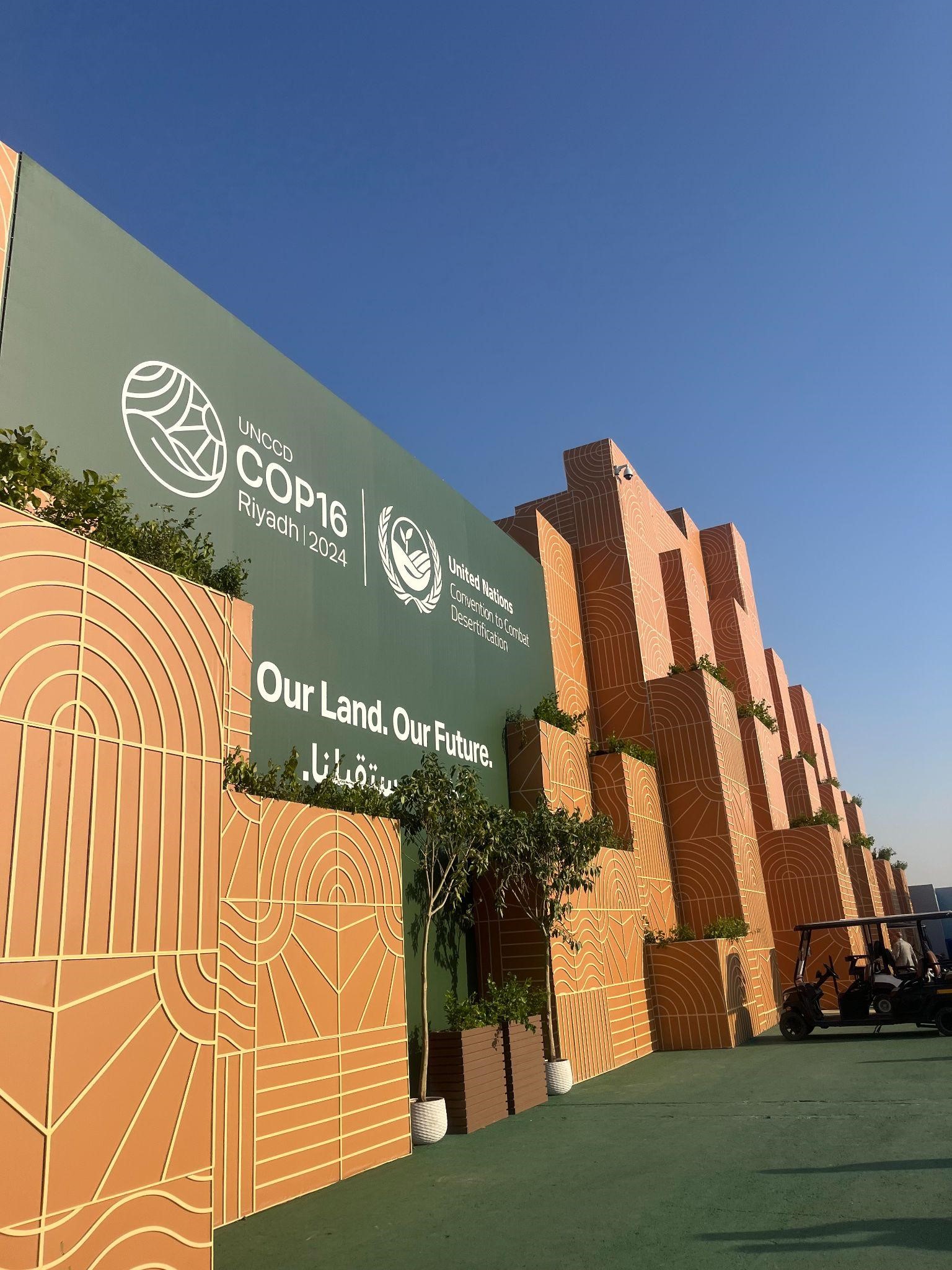

Milestones under the “Negotiation Track“
At a time when the world is desperate for restoration – of both land and hope—this COP truly delivered. The program at COP16 was organized under a dual approach, first with a Negotiation Track focusing on COP decisions and political declarations. This track produced critical decisions and reports, including:
- Launch of Assessments: Financial Needs Assessments and new reports from the Science-Policy Interface (SPI) on aridity trends and sustainable land use systems.
- Expanded Participation in UNCCD Processes: Creation of caucuses for Indigenous Peoples and Local Communities, adoption of a Youth Engagement Strategy, and expansion of the SPI, also now a permanent body in the UNCCD, with additional scientists, including early-career experts.
- Integration with Global Frameworks: Inclusion of agriculture as a focus area, aligning with the Kunming-Montreal Global Biodiversity Framework and global food systems governance.
- Progress on Drought Governance: Steps toward a Global Drought Regime, though a legally binding protocol remains postponed to COP17 in Mongolia, due to a lack of consensus, causing widespread disappointment among many observers and party delegates.
The Action Agenda: A new chapter for land restoration
The second, new part of the COP16 program was the Action Agenda which set COP16 apart from its predecessors, with seven thematic days showcasing voluntary commitments on land, resilience, agri-food systems, governance, people, finance, and science. Key outcomes included:
- Riyadh Global Drought Resilience Partnership: Over $12 billion pledged by financial institutions to support this newly-launched initiative for drought-prone countries.
- Business Engagement: Mobilized more than 200 CEOs from a wide range of companies and corporations through the Business4Land initiative, which promotes private-sector contributions to land restoration efforts.
- Empowerment of Civil Society: 3000+ representatives from Civil Society Organizations, Indigenous Peoples and Local Communities, united around strong declarations and actionable commitments, including the Sacred Lands Declaration launched at UNCCD’s first-ever Indigenous Peoples Forum. The inaugural Mayors’ Forum highlighted the importance of local governments adopting Nature-Based Solutions to combat drought and climate change.
- Science and Technology: The UNCCD SPI and local universities shared evidence and innovations that are transforming the future of land management.
In sum, this COP brought to the forefront the day-to-day land operations and practices of all stakeholders, empowering communities to collectively address climate change, secure sustainable food systems, and maintain healthy ecosystems. To continue this momentum, the COP16 Presidency announced a new overarching, innovative mechanism called the Riyadh Action Agenda, which emphasizes collaboration between non-state and state actors to achieve the UNCCD goals of land conservation and restoration, drought resilience, and sustainable agri-food systems. If this isn’t hope for restoration, we don’t know what is!

Highlights from our activities
Amidst a packed schedule of events in Riyadh, we had the privilege of actively participating in the Blue Zone at COP16, speaking about our research on nature-based solutions, land-use synergies, and the role of expertise in global environmental governance.
Sara (see photos below): During the SPI Day, Sara delivered a keynote presentation at the Youth Session where she shared key findings on how the UNCCD Science-Policy Interface (SPI) serves as a success story for bridging science and policy, and also highlighted its synergy with the Riyadh Action Agenda in leveraging the expertise and actions of science, youth, and other non-state actors for land restoration.



Nady (see photos below): During a panel discussion at the IUCN pavilion underlining the need for businesses, NGOs, and financial institutions to drive on-the-ground implementation for Land Degradation Neutrality, Nady highlighted the role of non-state actors. He also urged stakeholders to adopt nature-positive solutions, with initiatives such as the “United 4 Land Declaration” providing concrete frameworks for action.



Impressions from COP16: A platform for non-state actors
Our overall impression of this COP, having attended the previous UNCCD COP, as well as several climate COPs, was the impressive agency given to non-state actors. COP16 truly stood out for amplifying the voices of non-state actors—civil society, Indigenous Peoples, Local Communities, youth, women, and business—in addressing the inter-linked crises of land degradation, climate change, and biodiversity loss. This inclusive approach helped to raise the UNCCD’s profile within global environmental governance, a landscape that is becoming increasingly crowded with institutions competing for resources and attention, each thinking their own area of focus is more important than the other. A resounding message throughout COP16 was the need to harmonize efforts across the Rio Conventions. Achieving ambitious goals such as conserving 30% of the Earth’s land and oceans (CBD) and restoring 1.5 billion hectares of degraded land by 2030 (UNCCD) in a 1.5C world (UNFCCC) will require systemic change, driven by grassroots action and collaborative solutions.
With 2030 now just five years away, the timeframe for achieving these goals is narrowing, and there is a risk that greedy actors will propose and implement quick-fix solutions in a top-down manner. This would only exacerbate the pressing global socio-environmental problems that threaten billions of livelihoods and countless biodiversity-rich ecosystems. However, if state actors and secretariats in these intergovernmental conventions allow more space for civil society and other non-state actors to have a say and demonstrate real action at the grassroots level, it can potentially activate an ambition loop, that inspires and motivates state actors to put aside their political agendas, and focus on working together to save this earth and its inhabitants before it’s too late.
A new path forward towards Belém, Brazil, November 2025
2024 will be remembered as the year when non-state actors in the land sector harmonized their efforts across COPs, proving that collective action can lead to transformative change. The COP16, in particular, has laid the foundation for the biggest leap forward in land action. This event didn’t just inspire hope—it delivered concrete action to restore land and resilience. We saw how the Riyadh Action Agenda, and many inspiring on-the-ground initiatives set a precedent for uniting stakeholders to meet the challenges ahead.
As scientists and practitioners, we are committed to sustaining this momentum, looking toward the unification of goals across conventions at UNFCCC COP30 in Belém, Brazil, November 2025. Together, we can turn promise into progress and ensure a healthier planet for all.
